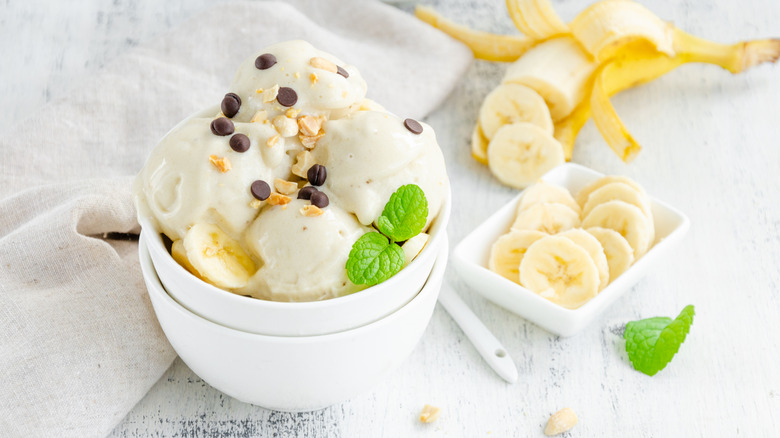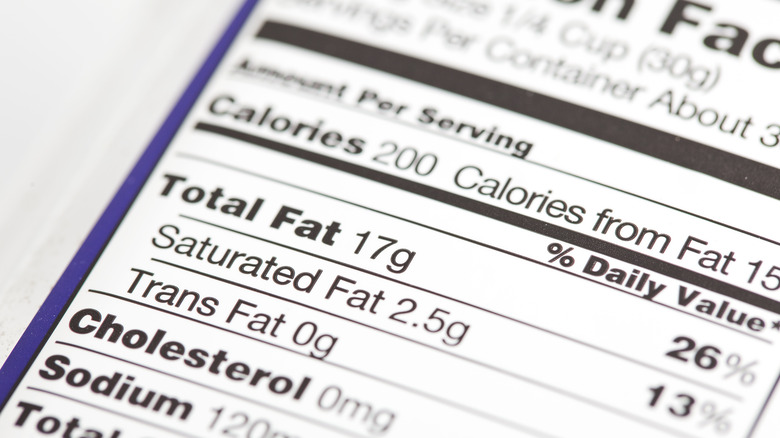Is Vegan Ice Cream Actually Good For You?
Vegan ice cream is popular not only because it is plant-based, but because it is lactose-free, giving people who are sensitive to dairy a chance to enjoy the frozen dessert without negative side effects (via Health). But is it actually good for you?
The answer is, maybe. To make vegan ice cream, manufacturers replace whole milk with plant-based substitutes that include coconut, oat, almond, cashew, or soy milk. Some of these milks, just like whole milk, are packed with fat and calories. For example, coconut milk is often used as a milk substitute in plant-based ice cream because it is rich and creamy. However, it is high in saturated fat, which is linked to high levels of LDL cholesterol (aka the "bad" kind) in the blood. It's not just a high fat content that makes vegan ice cream unhealthy. Where you have high amounts of fat, you also have a high amount of calories. In addition, vegan ice creams usually contain added sugars.
Choose the healthiest options
It is worth noting that Healthline lists vegan ice cream as "vegan junk food," because it contains virtually no minerals, vitamins, or other nutrients your body needs. In many cases, it is no better for you than regular ice cream, and might even be worse. For example, regular ice cream has around 150 calories and 5 grams of saturated fat per serving (via Pop Sugar) while some vegan ice cream can have as much as 250 calories per serving and 15 grams of fat per serving (via VeryWell Fit).
To put it simply, some vegan ice cream is healthier than others. Just like with other processed foods, you will need to read the label on each brand to know how it stacks up, because the numbers vary wildly. When shopping, look for an ice cream that contains fewer than 200 calories and 5 grams of fat per serving (via Pop Sugar). As far as added sugars go, the American Heart Association recommends no more than 36 grams per day for men and no more than 25 for women.


